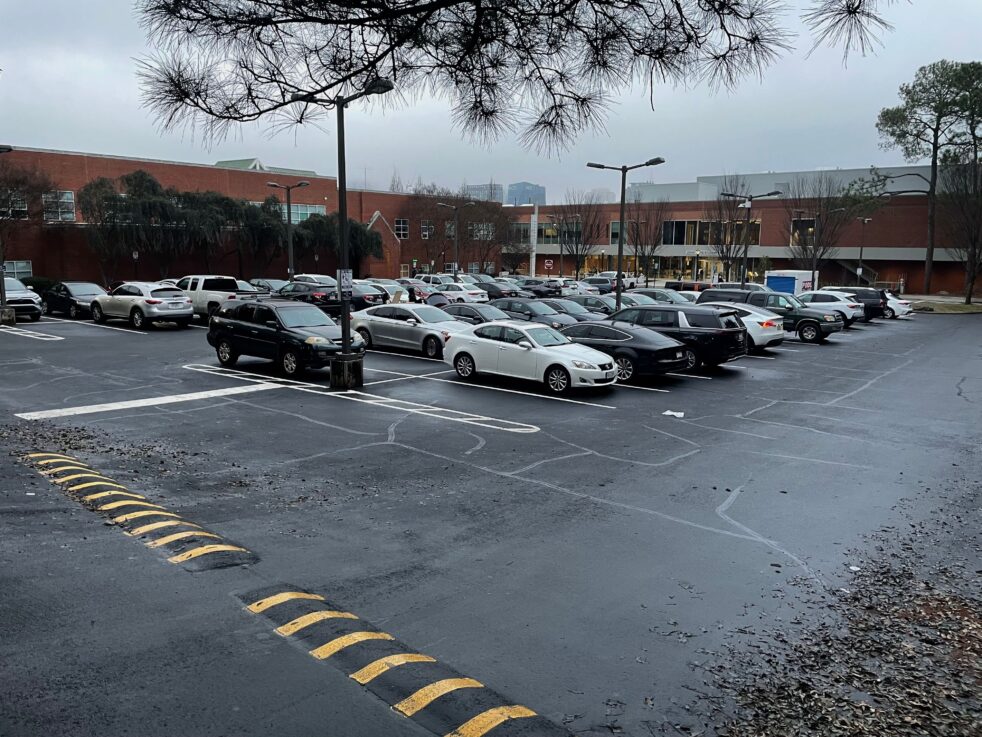From taking MARTA to driving on I-285 to navigating the roads of Midtown on a Bird scooter, Tech students and Atlanta residents alike are faced with the daily decision of how to get from point A to point B in the quickest and safest manner.
Several programs of study at Tech give students the opportunity to explore these topics further. Ivee Baral, second-year CRP and CE graduate student, focuses her studies on transportation systems engineering and transportation planning.
Her interests in this topic were piqued from personal experiences.
“I was born in a really small town, and all it had [was] buses and rickshaws … then, I moved to the city for high school,”
Baral said. “… When I moved to the city, it was very overwhelming for a kid, a school-going kid, so I found out that if you can figure out the bus routes, you can go anywhere you want.”
She realized that accessibility of transit can affect your independence, an idea that fascinated her and eventually drove her to choose studying urban planning during her undergraduate degree.
“I’m like ‘Ok, let me get to the bottom of this. I need to understand how this works. What are the things in your life that affect the vehicle you choose?’ Money obviously, but is there anything else? Some people bike, some people walk, some people take the transit, some people do not like to share their car with other people. I was very, very fascinated by that,” Baral said.
Baral herself has used MARTA before to commute to an internship, and her own experiences highlight one of the core issues of Atlanta’s public transportation. According to Baral, the trains were not frequent enough to be easy to use.
“It’s like a cycle. To make people use it, we need to make it better. But we don’t have the money to make it better because not enough people are using it,” Baral said.
Although so many Atlantans are already dependent on driving as their main mode of transportation, the idea of simply expanding roads to alleviate demand can often result in even more traffic. This is the idea of induced demand, meaning more demand for roads and highways will be generated as the supply increases.
“Making more roads is going to make it worse,” Baral said. “We need to change the existing roads in a way that will have bike lanes, bus lanes and maybe leave one lane for the cars. Make it difficult for the drivers to use it, but at the same time, make the transit better so they have other options. Just trying to get rid of the car is not going to solve any issue. We need to make transit better first, and then redesign the roads and then maybe we can talk about getting rid of the cars.”
While the undertaking of redesigning an entire city’s transit to reduce dependence on cars might seem daunting, Tech’s campus has smaller improvements that could be made quicker. Baral believes that while Tech’s transportation is not perfect, “it’s not horrible” either.
From pedestrian pathways to the bus system, there is infrastructure allowing for several transit options. However, one of the biggest areas of concern, according to Baral, is the safety of pedestrians when they encounter cars, bikes or e-scooters.
“I just walk literally everywhere. So from my point of view, when I have my headphones on, I don’t feel safe enough. I feel like I might bump into a biker or someone using a scooter, because everyone is using the same lane,” Baral said.
The rise in e-scooters has posed even more challenges — most unique from cars.
“Obviously, I want people to use scooters because that’s easy and a lot better than using a car, but at the same time, I don’t think we have any designated parking spots for scooters,” Baral said, who has seen e-scooters parked anywhere ranging from the middle of the street to inside the library.
In addition to designated parking, Baral would like to have designated lanes for scooters all across campus and specific speed limits for them. Another recommendation is creating clearer regulations about what is allowed on campus as a scooter.
“In the category of scooter, a lot can go in because it’s [a] new mode of transportation, so we need to specify the types of vehicles we would allow as scooters,” Baral said. “If we could regulate that, it would be really helpful. I think that would be a lot safer.”
Another area she would like to see improvement on is the bus system at Tech, which could lend itself to increasing students’ access to other parts of Atlanta.
“This was the case for my undergraduate university. The college buses would go [to] different parts of the city for the transportation of students,” Baral said. “… Maybe it can be once a day, we have five buses that go outside the campus, far in the North side or different parts of the city.”
A final action item Baral would like to see is improvements to the Tech Parkway crosswalks by adding stop signs or signals. Despite the room for growth on Tech’s campus that Baral sees, she still enjoys moments on campus, including her car-free walk from the library to the Howey Building.
“A lot can be done, but we are definitely doing good,” Baral said. “… Even if it’s not 100%, … I’ll take whatever changes we make.”
